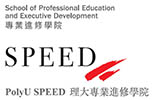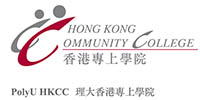雙語社評齊齊聽
[英語 (足本收聽)] Presented by Dr WANG, Xiang Iris, Lecturer of Hong Kong Community College, The Hong Kong Polytechnic University
[普通話 (足本收聽)] Presented by Dr JIAO, Nina, Lecturer of Hong Kong Community College, The Hong Kong Polytechnic University
After launching specific measures to poach talent late last year, the SAR government had received 7,417 applications within one month, and quickly approved 5,799 of them, the Secretary for Labour and Welfare announced on 8 February. The successful applicants had been issued a two-year stay pass in Hong Kong (which is renewable).
Within the short span of a month, from the categories for graduates of the world's top 100 universities with at least, as well as less than three years' work experience, there were 6,245 applications. There have been quite a few murmurs about the lack of success from Category A that requires an annual salary of $2.5 million or above. This is stricter than Singapore, Hong Kong's competitor. But in fact, there have been 470 applicants approved for this category, and 169 of them have an annual salary of $5 million or above. Deducing from these figures, the government's goal of attracting 35,000 talented people within a year should not be difficult to achieve.
However, a plan announced by the central government just now seems to have caught the Hong Kong government off guard. The more "favourable" conditions the central government offers include 5-year, 3-year and 1-year travel endorsements to six types of talent in different industries, which allow unlimited trips between the Greater Bay Area and Hong Kong. This measure is more in line with actual needs, since outstanding experts in the legal, medical, health, cultural, educational and scientific research sectors who are already in employment in the Greater Bay Area need convenience in travelling so that they can visit Hong Kong to attend international conferences, contact customers, etc. More often, they need to attend face-to-face problem-solving sessions for cooperation projects with other industry players. There are also companies headquartered in the Guangdong Province or Hong Kong requiring employees from different departments to attend meetings and so on.
In this newspaper's editorial on 29 August last year, we proposed that people with Guangzhou and Shenzhen household registrations and work experience in innovation and technology be allowed free access to Hong Kong to seek employment with innovation and technology enterprises. The SAR government can grant them work visas. During their work in Hong Kong, they can freely travel between the mainland and Hong Kong as well as between Hong Kong and foreign countries, thus becoming genuine citizens of the Greater Bay Area. This way, not only will Hong Kong's talent pool be enriched, but it will also be extended to the Greater Bay Area.
Parts of this proposal are in line with the measure that the central government has just proposed. The difference is that it encourages innovation and technology talent from Shenzhen and Guangzhou to come to Hong Kong for employment.
Hong Kong is already part of the Greater Bay Area. Three years under the pandemic came with a three-year hiatus in the construction of the Greater Bay Area. The central government has taken the initiative in announcing the endorsement plan for Greater Bay Area talent to travel to and from Hong Kong. It heralds the restart of the Greater Bay Area construction. Exchanging talent and building a joint talent pool will only be part of the process. The SAR government should comprehensively review its array of policies to find barriers to the flow of various elements in the Greater Bay Area, thus paving the way for the restart of the Greater Bay Area construction.
香港搶人才應面向國際 大灣區共建共享人才庫
勞工福利局長2月8日宣布,特區政府自去年底推出搶人才具體措施,一個月收到7417宗申請,迅速批准了5799名人才,他們獲得在港逗留兩年的通行證(可申請續期)。
在短短一個月,屬於世界百強大學畢業生,工作經驗3年以上或以下的類別,共有6245份申請,而坊間對於A類人才成績未符理想頗有微言,這個類別要求年薪250萬元或以上,條件比競爭對手新加坡更為嚴格,而事實上,這個類別獲批的申請者有470人,其中年薪500萬或以上的也有169人。按照這個數字推算,政府在一年內吸引35,000個人才的目標,應該不難達到。
然而,現在中央公布的計劃,似乎是中間殺出的程咬金。中央更「優厚」的條件,分別給6類不同行業的人才5年、3年或1年的簽注,可以無限次數往來大灣區與香港。而這個措施,更符合實際需要,因為已經在大灣區就業的法律、醫務衛生和文教傑出人才或者科研人才,他們需要的是往來的便捷,來香港出席國際會議、與客戶聯繫等,更多的是,同業間合作的項目需要面對面共同解決一些問題,或者在同一間企業,總部設在廣東省或者香港,不同部門的員工需要出席會議等等。
本報去年8月29日社評提出,只要有廣州和深圳戶籍,擁有創科工作經驗,就可以自由來港應聘創科企業,特區政府可給他們工作簽證,他們在港工作期間,可自由往返內地與香港,以及香港與外國,做一個真正的大灣區人,既可充實香港人才庫,也可將人才庫延伸至大灣區。
這個建議跟中央政府現時提出的政策,部分是不謀而合的,所不同的是,更加鼓勵深圳和廣州的創科人才來港就業。
香港已經是大灣區的一員,疫情3年,大灣區的建設也停擺了3年,日前中央政府主動宣布大灣區人才來往香港的簽注計劃,是一個信號,相信很快會大張旗鼓重啟大灣區建設,人才互通和共建人才庫只是其中一環,特區政府應該全面檢視各項政策,查找妨礙各項要素在大灣區流動的藩籬,為重啟大灣區建設鋪路。
明報社評 2023.02.13







